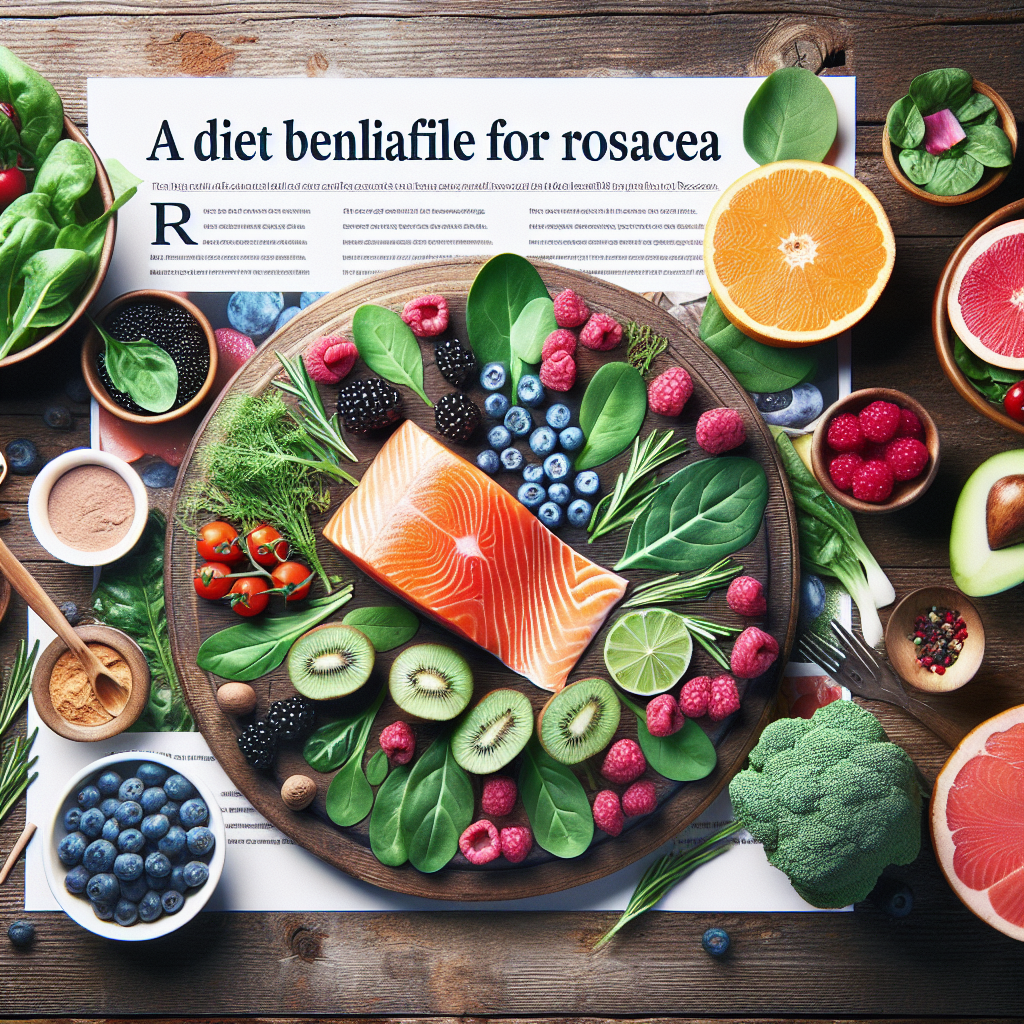How Organic Foods Can Help Reduce Rosacea Flare-Ups
Rosacea is a chronic skin condition characterized by redness, inflammation, and sensitivity. While medical treatments are available, dietary changes—particularly incorporating organic foods—can play a significant role in managing symptoms. Organic foods are free from synthetic pesticides and additives, which may trigger inflammation. By focusing on nutrient-dense, anti-inflammatory options, you can help calm your skin from the inside out.
The Connection Between Diet and Rosacea
Research suggests that certain foods can either exacerbate or alleviate rosacea symptoms. Processed foods, alcohol, and spicy dishes are common triggers, while organic whole foods rich in antioxidants, omega-3 fatty acids, and zinc may reduce inflammation and support skin barrier function. Organic foods are especially beneficial because they minimize exposure to chemicals that could worsen skin sensitivity.
Top Organic Foods for Rosacea Relief
Incorporating these organic foods into your diet may help reduce flare-ups:
1. Zinc-Rich Foods
Zinc is essential for skin repair and immune function. Studies show that zinc deficiency may worsen inflammatory skin conditions like rosacea. Organic sources of zinc include:
- Organic oysters: One of the best sources of zinc, oysters also contain selenium for added skin protection.
- Pumpkin seeds: A plant-based zinc option that’s easy to add to salads or smoothies.
- Grass-fed beef: Offers bioavailable zinc and anti-inflammatory omega-3s.
2. Anti-Inflammatory Omega-3s
Omega-3 fatty acids help reduce redness and irritation. Opt for these organic sources:
- Wild-caught salmon: Rich in EPA and DHA, which combat inflammation.
- Chia seeds: A versatile plant-based omega-3 source for smoothies or yogurt.
- Walnuts: Packed with antioxidants and healthy fats.
3. Antioxidant-Packed Fruits and Vegetables
Colorful organic produce helps neutralize free radicals that contribute to skin inflammation:
- Leafy greens (kale, spinach): High in vitamins A and C for skin repair.
- Blueberries: Contain anthocyanins, which reduce oxidative stress.
- Beets: Their betalain compounds support detoxification.
Foods to Avoid for Rosacea Management
While adding beneficial foods is important, avoiding triggers is equally critical. Steer clear of:
- Processed snacks with artificial additives
- Spicy foods that dilate blood vessels
- Alcohol, especially red wine and beer
- Conventional dairy (some find organic, fermented options like kefir tolerable)
Practical Tips for an Organic Rosacea Diet
Meal Planning
Prep meals with organic, anti-inflammatory ingredients. For example:
- Breakfast: Smoothie with organic spinach, chia seeds, and blueberries.
- Lunch: Quinoa salad with pumpkin seeds and organic vegetables.
- Dinner: Grilled wild salmon with steamed kale and sweet potatoes.
Hydration and Herbal Teas
Stay hydrated with filtered water and soothing organic teas like chamomile or ginger, which may reduce facial redness.
Final Thoughts
While rosacea has no cure, an organic, nutrient-focused diet can significantly reduce flare-ups and improve skin resilience. Emphasize zinc-rich foods, omega-3s, and antioxidants while avoiding processed triggers. Always consult a dermatologist or nutritionist to tailor these suggestions to your needs.
